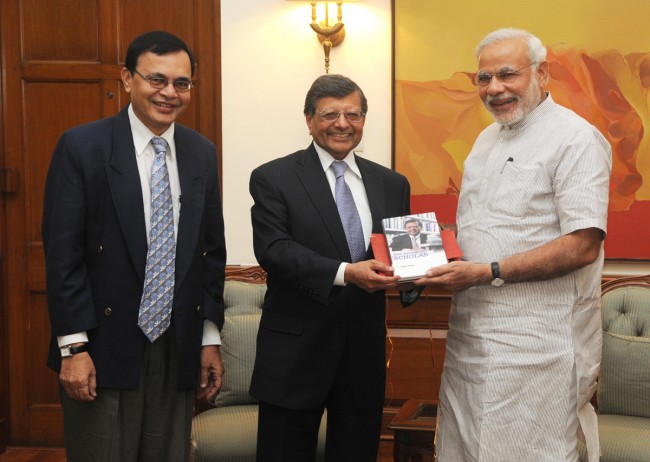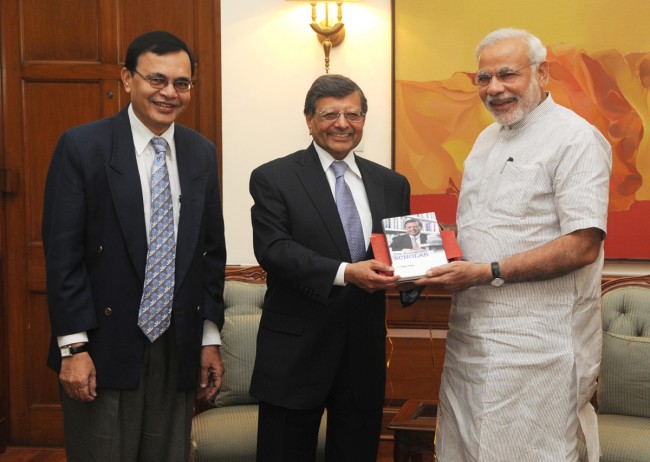BY KAPU ADITYA RAO
The Accidental Scholar, by Jagdish Sheth, is the story of a young man from India who went to America to realize the American dream and became a world-renowned educator and thought-leader. Dr. Sheth, founder of the India China and America Institute, the Sheth Foundation, and marketing professor at Emory University’s Goizueta Business School, recounts his life and the people and events that shaped – or were shaped by it.
The autobiography starts at the beginning of Sheth’s career – in a MBA classroom at the University of Pittsburgh where the professor states that, based on new consumer research, a vast number of American housewives go shopping without shopping lists. They are impulse buyers. Sheth, a student in his first semester, asks whether or not all illiterates are then necessarily impulse buyers as well. The question struck me as odd. But as one reads further into the book, it is obvious that it is precisely this kind of thinking that has made Professor Sheth on of the most respected marketing gurus in the world.
Born into an entrepreneurial Jain family in Burma (his family moved to India when he was still very young), Sheth, the youngest of six, chose to study abroad rather than work right away in the family business. And after loans from family friends, his journey takes off – to Pittsburgh where he would complete his MBA and then apply for a PhD. The accidental scholar does not pursue the often intellectually banal track of jumping straight into business after schooling. He is instead follows his passion to better understand his field.
It becomes apparent that there is not too much room for luck in the journey of the accidental scholar. Serendipitous events happen, but only against a backdrop of almost an inhuman level work – perusing through the Columbia stacks, revitalizing and reforming the administration of University of Illinois, even starting a foundation in Atlanta to help younger scholars in the field of marketing. There are abandoned projects and setbacks. But Dr. Sheth never stops working. Though the book neatly presents a didactic paragraph that summarizes each chapter, the most important lesson is fairly simple – find your passion and keep working.
Interspersed throughout the book is Sheth’s love for his wife, Madhu. Despite the flux and vicissitudes of the years, she is, in Professor Sheth’s own words, his backbone. In a world of change, his family life remains a constant.
Ultimately, this book is part saga, part blueprint, not only for those entering academia, but those who are – like me – entering adulthood. When a young Sheth came to America, a foreign land, it couldn’t have been easy. And yet he made it. Perhaps by adhering to his lessons, we will too.






